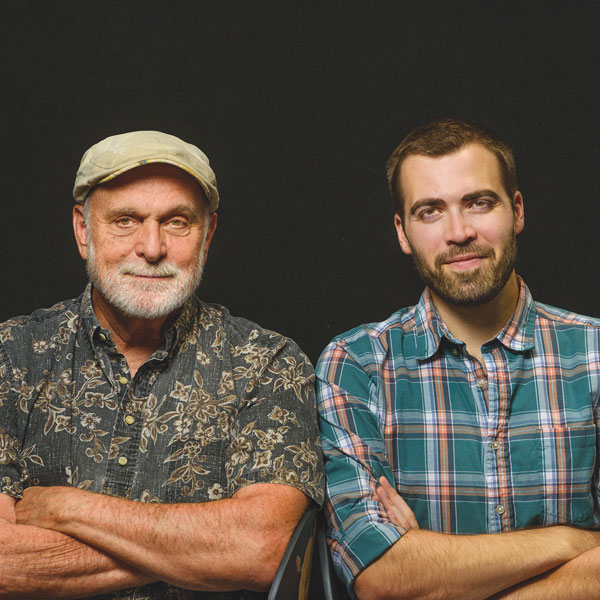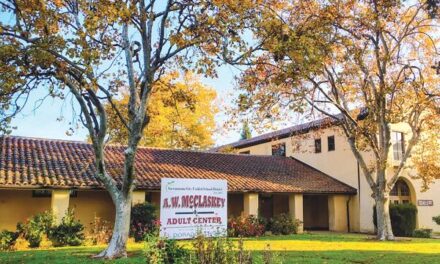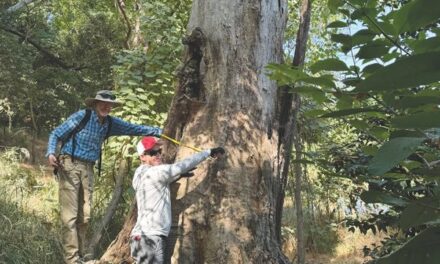Walk A Mile In My Shoes
August 2021
Editor’s Note: Inside Sacramento asked Zack Sherzad and Walter Yost, two local writers with differing political perspectives, to meet and swap media diets for several weeks. We didn’t know if they would learn anything or even get along. Their stories describe what happened. Thank you to Braver Angels for the original idea of media swaps.
Let’s avoid labels, but the beret can stay
By Zack Sherzad
When someone asks if I am a right-wing conservative Republican or a left-wing liberal Democrat, I shudder. There’s no useful answer. In the best case, the response produces a friend who parrots your beliefs. In the worst case, you are ridiculed and dismissed.
When I learned I would be paired with a Democrat in a journalistic experiment where we swap news diets in the spirit of bipartisanship, I was nervous. I don’t like the idea of one’s life experience being boiled down to a single word. It leaves too much to the imagination. In the current political climate, imagination can be uncharitable.
Consider my first impression of Walter. I was told he was “far left.” When we arranged to meet in a coffee shop, he told me I would know him by his beret. Really? My imagination began to whirl. Was he an artist, communist or revolutionary? All three?
We hadn’t even met and already I’d turned him into a caricature.

We exchanged news sources—his more traditional print journalism vs. my techie websites, podcasts, YouTube videos and Reddit threads—and met three times to discuss how the exchange was affecting us.
Each time I was pleased by the nuance of our conversations. We hedged our assertions with considerate devil’s advocacy. We let each other speak.
The trick, we concluded, was to avoid focusing on labels. There may be times when labels can be useful, but they are shortcuts—excuses not to do the hard work of learning what someone really believes, and how those thoughts developed.
It’s easy to hate a label. Liberal. Conservative. Democrat. Republican. These are abstract concepts, not people. They depend more on the perspective of the perceiver than the perceived. It’s not so easy to hate the articulate individual standing before you, drinking an iced coffee and sharing events that shaped his politics.
When I was in high school, I joined a mission trip. We drove to Tijuana to build a house for a Mexican family. We arrived at dusk and passed through the city as the sun was setting. I saw people living under tarps, sleeping on bare dirt and drinking filthy water. As a teenager from a small U.S. town, I never imagined such a degree of poverty existed.
We spent a week pouring a foundation and assembling a simple one-room house out of tarpaper and wood. When we finished we gave the family a broom as a housewarming gift. It was a cheap broom from a dollar store, but the mother cried and hugged the broom to her chest. Her 7-year-old son said, “Now we will not have to sleep in the street with the cockroaches.”
When I graduated from college, I joined the Peace Corps and spent two years teaching English in Tanzania. Most of my students were desperately poor. Their parents were subsistence farmers who lived at a standard many Americans would not believe possible. Their houses were made of sticks and mud, with roofs thatched from dried palm fronds. They collected rainwater to drink and labored to grow cassava in the jungle.
None of this experience is communicated by the word “Republican.” When I read Walter’s media, it felt as if millions of reasonable Republicans nationwide were being judged by the behavior of outliers. It seemed that all good faith had been drained from the conversation. The situation is similar for right-leaning media coverage of Democrats.
It would be easy to blame the media. But I don’t like that narrative. Americans are not sheep. If something thrives, it’s because an audience exists.
It’s quicker and easier to label, condemn and ignore the opposition than to practice the intellectual discipline, rigorous open-mindedness and radical empathy required for true centrism.
But the media meet us where we are—and right now many Americans choose the easy path of prejudice.
Today I consider Walter a close friend. I respect him for his beliefs and have faith that his viewpoints make sense in the narrative of his experience. From now on, when someone says the word “Democrat,” I’ll think about Walter’s many good qualities. If we approach the opposition in good faith, we might find we aren’t as opposed as we think.
Zack Sherzad can be reached at zacksherzad@gmail.com.
Our media swap was a listening tour
By Walter Yost
When Inside Sacramento asked if I’d be interested in swapping media diets with a stranger, I was skeptical. After all, I’d spent most of my career as a newspaper reporter, a profession known for its skeptics.
When it comes to creating conversations between “blues” and “reds” to learn what they have in common, I’ve about given up on bridging that divide.
However, the concept was too intriguing to pass up. At Sacramento State, I’ve taught a class called “Media Literacy & Critical Thinking.” Here was an opportunity to put some of those classroom ideas to the test.
For this project I was paired with Zack Sherzad. I spent two weeks following Zack’s news and media sources, which included the State of Jefferson website and watching and listening to podcasts by Joe Rogan and Jordan Peterson.
Poor Zack had to read the New York Times and Political Wire and be exposed to my favorite left-wing magazine, The Nation.
As it turned out, sharing those news sources was insignificant compared to the freewheeling discussions Zack and I had, along with the friendship we developed while meeting for coffee or walking through Capitol Park.
At our first meeting, we realized the labels “conservative” and “liberal,” “Democrat” and “Republican,” and even “red” and “blue” didn’t fit us. We decided such definitions often create more divisiveness.
Our differences could be better defined as millennial vs. baby boomer (he’s 32; I’m 72), rural vs. urban (he grew up in Angels Camp and joined the Peace Corps; I was raised in the Bay Area, went to college in San Jose and identify with city life), and traditional vs. non-traditional (among Zack’s favorite podcasts is a 20-hour biblical lecture series; I’ve never read the Bible).
As Zack pointed out, our age difference helps explain our news habits. “Traditional news sources are respected by older people,” Zack says. “While newer generations tend to get their news from places like podcasts and social media.”
Case in point is “The Joe Rogan Experience,” one of the world’s most popular podcasts. Nearly every semester one of my students encourages me to listen to Rogan. I’ve always demurred.
My assessment after viewing several of his podcasts is that Rogan is a better listener and interviewer than I imagined. His guests were interesting. Rogan would often ask intelligent, pointed questions.
But something about him nagged at me. Then recently, he attacked President Joe Biden, saying, “Everybody knows he’s out of his mind. He’s just barely hanging in there.”
Sorry Zack, but that’s the kind of lies and misinformation spewed by Fox News, not by someone many consider a “centrist.”
This brings me to Jordan Peterson. My initial reaction to Peterson was, “Who?”
As Katha Pollitt wrote in a Nation column: Friends, where have you been? Peterson’s 2018 book, “12 Rules for Life: An Antidote to Chaos” has sold five million copies and his YouTube channel has 3.68 million subscribers.
But Pollitt is no fan. Peterson’s work, she says, contains a lot of “sexist, conservative, mythological/biblical/evolutionary-animal-behavior-folderol.”
I gave Peterson a fair shot, watching several of his YouTube videos. I agree with Pollitt.
Neither Zack nor I may continue to walk in each other’s news, but that really isn’t what this experiment is about.
The hours Zack and I spent together talking were a revelation. We shared our life experiences and listened with the intent to understand each other. I was impressed by how well we got along. We shared titles of some of our favorite books, including “The Overstory” by Richard Powers (mine) and “Poor People” by William T. Vollmann (his).
Our experience reminded me of something Celeste Headlee, author of “We Need to Talk: How to Have Conversations That Matter,” said: The most important skill you can develop is listening.
Maybe that’s the most we can ask of each other. Take time to listen.
Walter Yost can be reached at walteryost@gmail.com.















